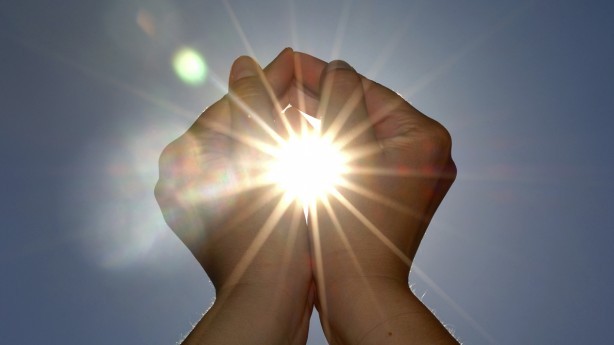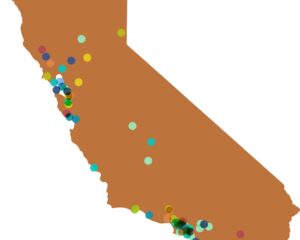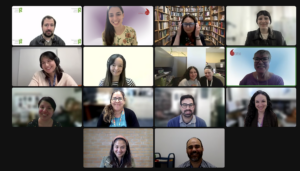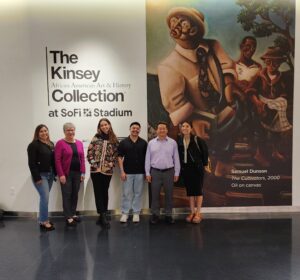If your house were on fire, what would you save?
Today, ongoing wars, the housing crisis, and the recession have hit many of us hard. Thousands have lost homes, retirement savings, jobs, and even loved ones. And yet I’ve noticed some unexpected and heartening after-effects—bright spots amidst this darkness. Many friends have made drastic changes in their lives, prioritizing long-neglected passions or making courageous career leaps into profoundly meaningful work. Others have engaged more deeply with their families and communities.
Historically, our darkest hours on Earth have given birth to some of our most brilliant moments—our brightest ideas and most illuminating conversations. Steinbeck, Picasso, and Einstein worked from such eras: the Great Depression, the Spanish Civil War, World War II. The voices of Harriet Beecher Stowe, Anne Frank, Gandhi, and Martin Luther King, Jr. have called to us from the edge of the abyss and inspired empathy, reflection, and change.
Perhaps suffering great hardship and loss reminds us of what’s most beautiful and precious, compelling us to take risks, speak out, and spend time on what matters most. Perhaps it is time to fundamentally re-examine how we’ve come to assign value as a society, and to work creatively in order to protect what matters from extinction.
In the U.S., value is increasingly based on simplistic estimations of market worth. That which doesn’t turn a profit is left to wither and die. In California, where few have recovered from the impact of the massive double-dip recession, the pressure to cut and abandon based on profitability is high. This perspective is dangerous. By changing the way we measure worth, we can protect what is truly most valuable to us in the long run.
We decided long ago, after all, that the common good was of public concern (hence public universities, public libraries, the public commitment to news access) and should not be wholly at the mercy of market pressures or preserved only when highly profitable. Yet now our news sources and patterns of investment in education are increasingly modeled on and distorted by what sells, and the effects are damaging. In order to ensure a healthy and vibrant society, we need to maintain our centers of community life; a free exchange of information and ideas; and our commitment to future generations of educated and engaged Californians. What we stand to lose simply cannot be replaced.
I know that each of us understands this instinctively on a personal level. If your house were on fire, what would you save?
The U.S. is more polarized than it has been for some time. We’re not only divided by political party and beliefs. The gulf between the “haves” and “have-nots” is widening, while divisive rhetoric and an ongoing recession drive us farther apart.
And now, more than ever, we need to have thought-provoking and productive conversations with one another about our common good. This concept is the heart and soul of our democracy. In 2012 and beyond, how do we define, commit to, and safeguard the common good?
At Cal Humanities, our response has been twofold: to seed, inspire, and create space for meaningful conversations about this topic; and to support and partner with institutions such as public libraries and schools.
As part of our own Searching for Democracy initiative, we’re bringing Californians from different backgrounds together to discuss the state of our democracy. I recently joined a standing-room-only crowd in Heber for one of our events. Members of this community, which faces profound education and employment challenges, came together on a weeknight with books in hand to talk with author Daniel Alarcón and each other about what we value as members of a democracy. In Fresno, Mt. Shasta, and across the state, I have witnessed passion, hunger, thoughtfulness, and commitment to this conversation beyond expectation, renewing my faith in our ability and efforts to overcome our current troubles.
The humanities are essential to these efforts. We look to the humanities—to history, literature, philosophy—to teach us critical thinking, creative problem-solving, and context. They teach us how to ask the right questions, learn from our past, and live better together.
At this time, we desperately need organizations like the James Irvine Foundation and our shared partners and stakeholders: those concerned with the health and future of California, our society, our democracy.
Economic pressures have brought about drastic cuts in many of the institutions that once helped us to achieve a common good—universities and schools, libraries, governmental structures, newspapers, and more. In the face of difficult times, we must support these essential pieces of American democratic infrastructure. They stand for the common good—for expanding participation in a “vibrant, successful, and inclusive society.” We must stand for them and, more broadly, for access to educational opportunities, meaningful conversations and connections, knowledge building, and civic engagement. The James Irvine Foundation, Cal Humanities, and our partners must not only support and partner with organizations devoted to the common good in this way; we must also support thinkers and leaders who can help expand our collective understanding of what’s valuable beyond the narrow one-dimensionality of a profit margin.
The challenges we’re facing can spur us towards brilliance—and prompt a course correction. We must be both far-sighted and courageous in our thinking.
Our house is on fire. What will we save?
Ralph Lewin
President and CEO, Cal Humanities
Note: As part of their 75th anniversary, the James Irvine Foundation invited thought leaders in California to identify and discuss the state’s most important trends and how we might respond to them. The article, reprinted here, first appeared on Irvine’s News and Insights blog at www.irvine.org.





